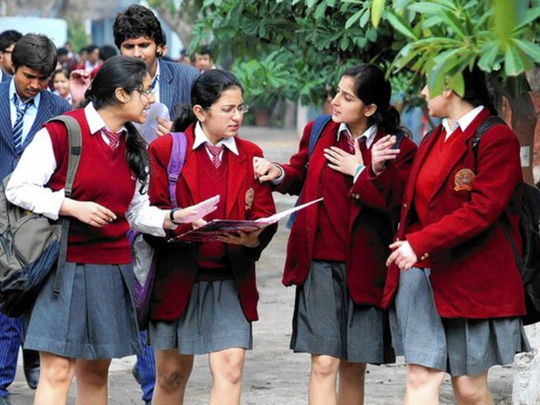
Mumbai, India: The voice that answers the number posted on the online ad is polished, confident: No one will suspect anything, he says. The gadget has never failed.
A college senior, he sounds younger on the phone but assures the caller that he speaks from experience. He gives his name as Anil and quotes his price: about $40 (Dh147). Minutes later he texts, offering a 6 per cent discount.
That’s the price to cheat on one of the important tests, a pressure-packed exercise that holds the key to the country’s most coveted colleges, universities and postgraduate programmes.
Anil, a medical student in southern India who asked that his full name be withheld, was selling a tiny wireless earpiece, scarcely bigger than the head of a pin. The earpiece receives a signal from a cellphone via a transmitter. During exams, Anil conceals the transmitter under a loosefitting shirt, texts pictures of the test questions to a friend at home and receives answers over the phone.
“There’s no way anyone can even make out you using the device,” says Anil, who found the earpieces in the United States and imports them in bulk, selling three or four a week on eBay to high school and college students. “I’ve never had any problems. You just need to have some confidence and a good friend who can help you out during the exams.”
India’s schools are renowned for producing hordes of talented math and science graduates, tens of thousands of whom go on to excel at universities in the United States and worldwide. But an emphasis on rote learning and the overriding importance of the exams have also spawned an inveterate tradition of cheating.
Meritocratic system
In India’s increasingly meritocratic system, good scores in the nationwide tests for 10th- and 12th-graders — known as board exams — determine not only admission to the best schools but also to the most sought-after disciplines, such as engineering and medicine. Likewise, undergraduates compete for limited spaces in elite postgraduate programmes. Parental pressure can be overwhelming, students say. Even for those not attending college, test results are the key to entering job training programmes that offer a ladder up to the middle class.
Education officials say they are tackling the problem, but for every comical-sounding contraption like the one Anil was selling, more extreme examples routinely surface in the Indian news media once exam season begins each February. At a school in Allahabad, in Uttar Pradesh, members of an inspection team were attacked with “crude bombs” last month after catching two students cheating, according to news reports.
Sometimes the stories in the India’s largest state are horrifying. A 10th-grader’s statement accused his principal last month of allowing students to cheat if they each paid about $100. The student’s impoverished family could barely manage half the bribe. Distraught, he doused himself with kerosene and set himself on fire in the family kitchen. He died the next day.
Preventive measures
At the well-regarded Balmohan Vidyamandir school in central Mumbai, 10th-grade teacher Shubhada Nigudkar didn’t notice the math formulas written on the wall in the back of the classroom in a neat, tiny script until days after the exams concluded.
“There is nothing we can do at that point,” the matronly, bespectacled English teacher said. “I can’t prove anything. So we move on.”
The problems have prompted education officials to take preventive measures that at first blush might seem worthy of a minimum-security prison. Some schools installed closed-circuit cameras to monitor testing rooms. Others posted armed police officers at entrances or employed jamming devices to block the use of cellphones to trade answers.
Teachers and school officials say rogue students make up a small fraction of the millions of those who take the board exams each year. But some say the problem became worse after a 2010 national education policy that guaranteed schooling for all children up to age 14. Under the law, no student will be left back until the eighth grade or forced to take a board exam until the 10th grade. Teachers say the policy coddles underperforming students and doesn’t train them to take tests.
“They are used to passing. They don’t become accustomed to studying,” said Madhukar Yadhav, a headmaster.












